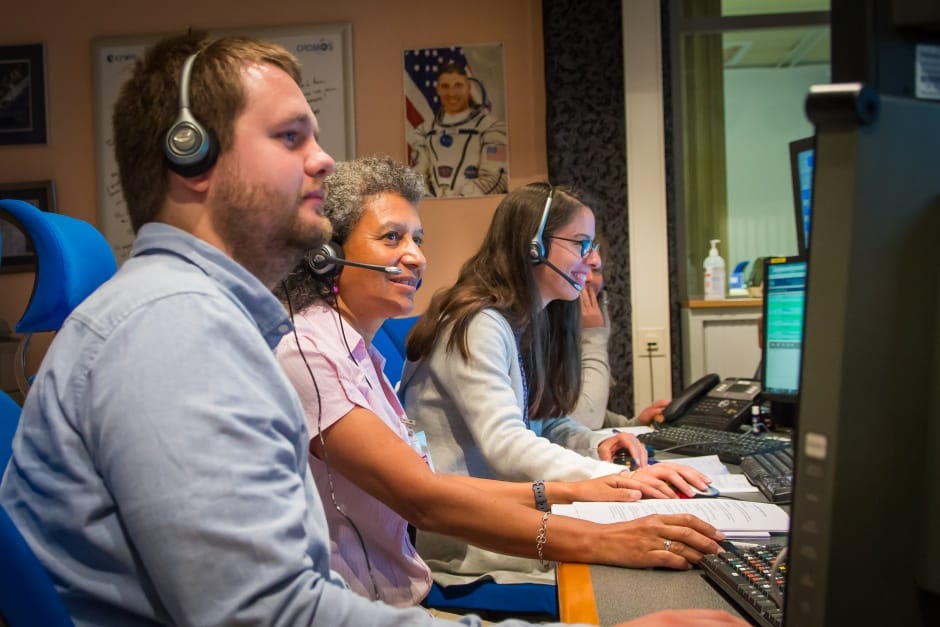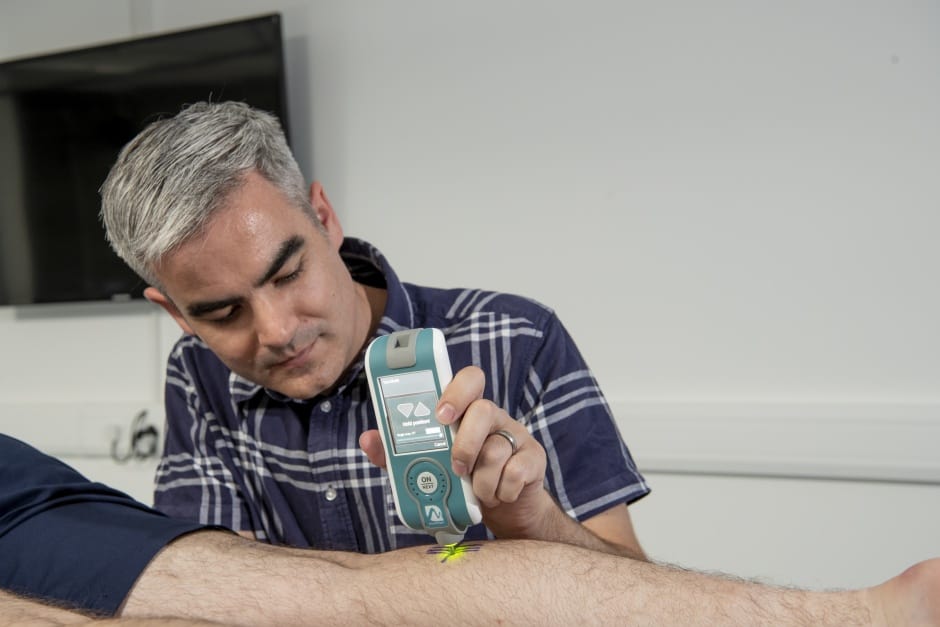
It has long been known that regardless of how much astronauts exercise while in space, their muscle mass and strength declines. However, until now no mission has carried appropriate equipment to test muscles over the course of an extended stay.
The Southampton team is taking part in the European space agency study called the Myotones project, which is led by Prof Dieter Blottner at the Charité Institute in Berlin. Three researchers from Southampton, Prof Maria Stokes, Martin Warner and research fellow Paul Muckett, have this week taken part in a live video link with ISS astronauts, talking them through a data collection session and explaining to them how they should perform measurements on their muscles over the next six months.

The ISS crew are using a commercially available device called a MyotonPRO, which sends mechanical pulses into muscles and records how the tissue oscillates in response to the pulse. This gives a rapid measurement of parameters such as tone and stiffness of muscles and tendons.
The Southampton team is leading on the imaging aspect of the project, using ultrasound scans to measure the thickness of soft tissue to understand any changes in the Myoton readings. These scans will also document changes in muscle size during the mission.
"During the live link we communicate with the astronauts to give instructions and guidance on how to collect the data," Warner said. "On the ground we have remote access to the equipment being used by the astronauts, enabling us to change settings and record data in real time. This ensures we collect accurate and reliable data that can be compared with the data collected on Earth before the astronauts leave for their ISS mission."
The aim of the project is not only to help understand what happens to muscles in space, but also to gain insight into muscle-wasting conditions. This will help in developing effective exercise programs for people on Earth living with musculoskeletal and neurological disorders, and will also help to counter the effects of ageing.
Science minister Sam Gyiama said the project will feed into the government's Ageing Society Grand Challenge. "It's a great example of how we are backing science and the space sector," he said.




Swiss geoengineering start-up targets methane removal
No mention whatsoever about the effect of increased methane levels/iron chloride in the ocean on the pH and chemical properties of the ocean - are we...